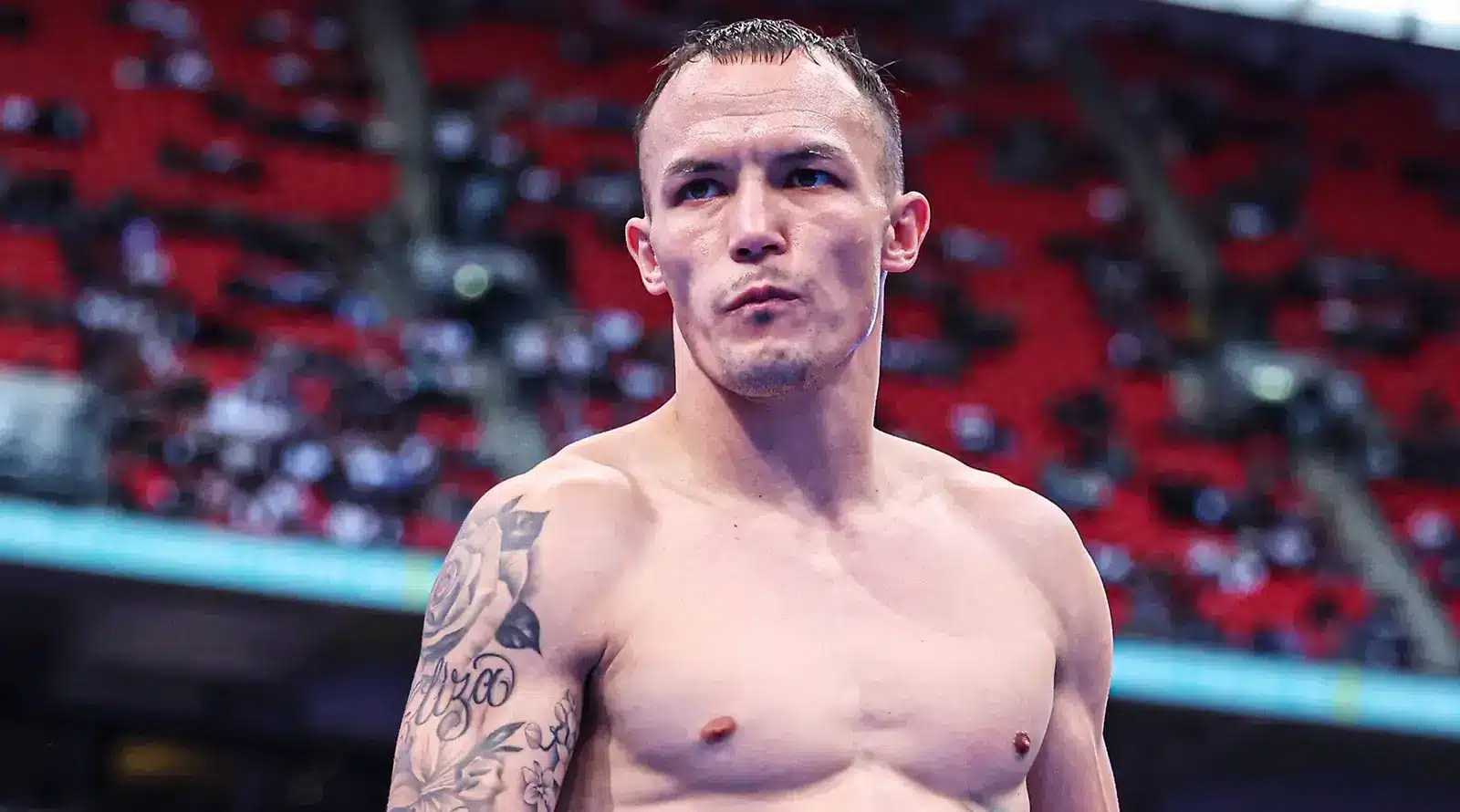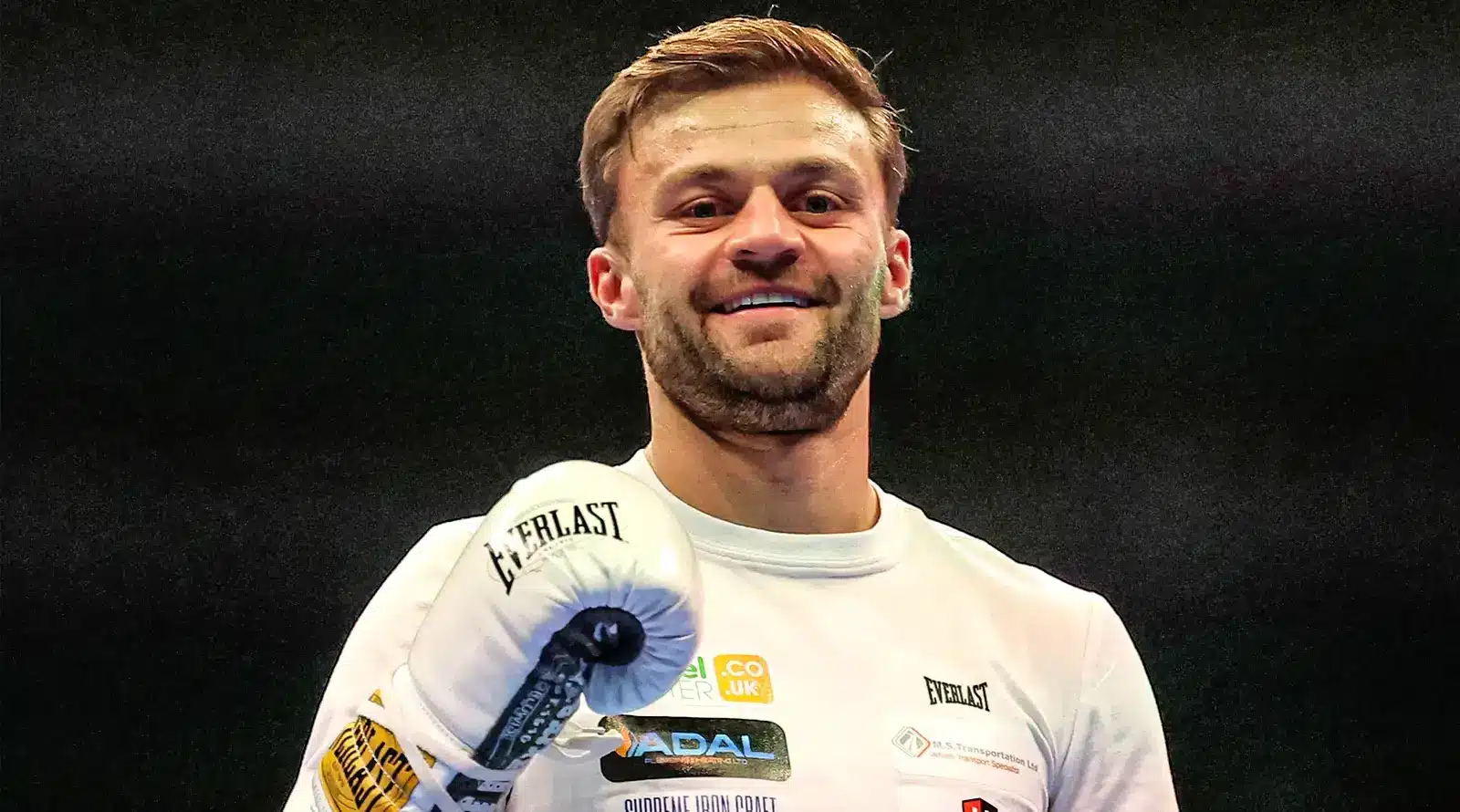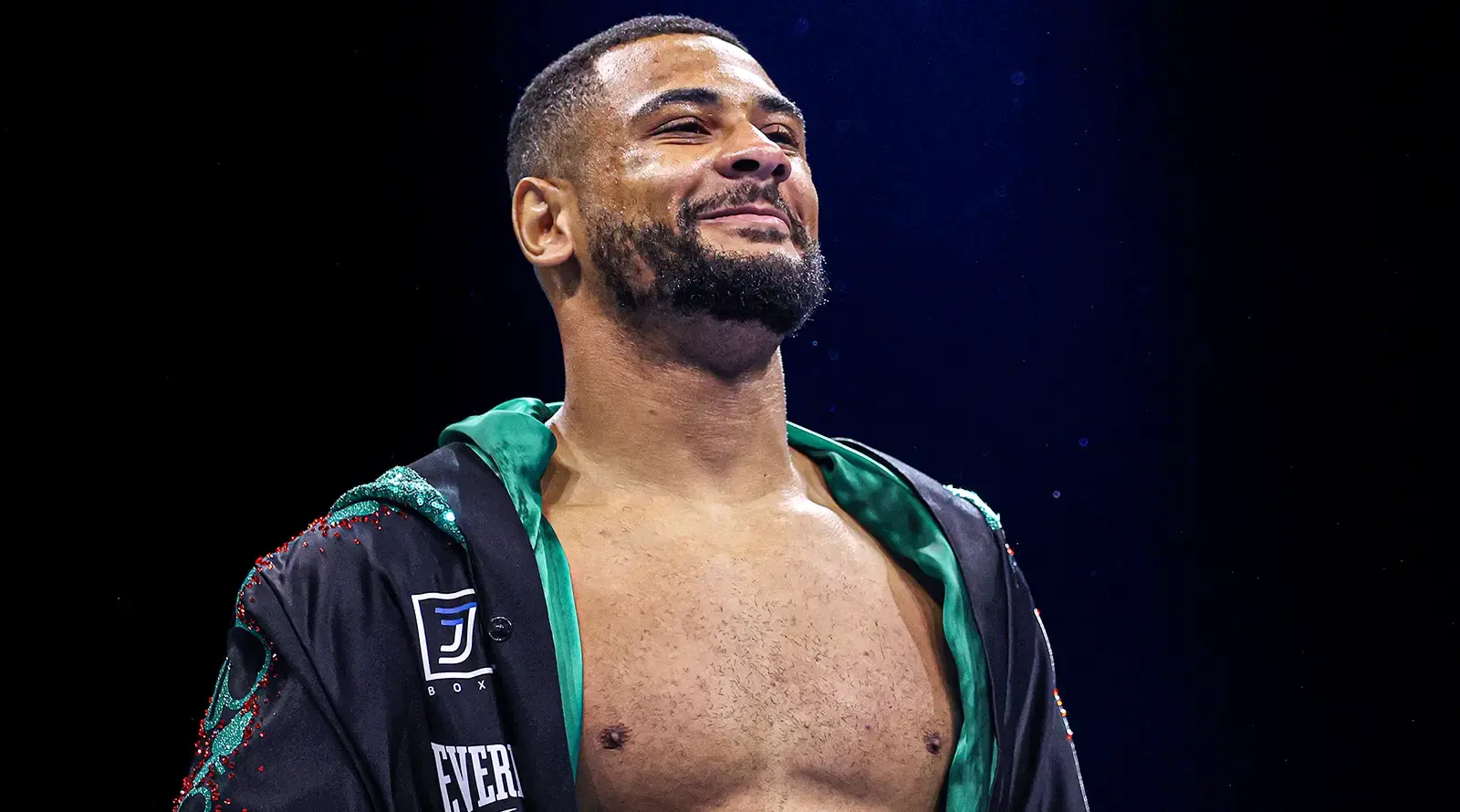- Hit and don’t get hit
The bottom line, with the way that the scoring system [was] set up, and it could even turn over to professional boxing, the guy who hits the other guy more than he’s being hit is the guy who wins and that’s the focus. Even as a professional it took me a while to come out of that Olympic scoring system mentality because I was always taught, ‘Don’t even let the opponent look as if he’s hitting you because you don’t know how the judges are scoring.’ I think the main thing is to focus on outworking the other guy.
2. Retaliate immediately
We’re in the sport of boxing; you’re going to get hit. But it’s how you respond and body language says a lot. If you respond the right way and you come right back and you land a combination – you do something to show the judges that it wasn’t really a big punch you took and that ‘even though he scored on me I’m still in this fight’, that’s the key. It’s very rare you can shut a guy out with the Olympic scoring system, so you’re going to get hit but what do you do when you get hit? How do you respond? And that’s the key.
3. Favour straight, clean punches.
They say that any punch is scored, they say they score body shots but when you see the countries that are successful and I’ll name two – Cuba and Russia – they seem to have a system and when I boxed amateur I had a system. You want to try to stick to straight punches, clean punches that everyone around the ring can see. If you’re in close and you’re throwing short body shots you’re probably wasting a lot of energy and nobody’s scoring any points for you. So it’s about keeping the proper distance, the proper range and throwing the types of punches – jabs, straight right hands, clean left hooks, overhand rights – things that all five judges around the ring can see and notice.
4. Watch film.
All we wanted to do at the Olympics was to get past the first day, because at that stage no one’s fought and you have no tape of anybody, for the most part. So after I got through the first day – my bout with the Italian [heavyweight World Champion and 2008 silver medallist, Clemente Russo] – I then had maybe three or four days in between each fight; that allowed my next opponent to fight and we were able to get film and I spent a lot of time with Al Mitchell, our technical head coach, just studying film.
That allowed me to be prepared for the strengths and also the weaknesses of my opponent. So film was key.
I’ve heard guys even in the professional ranks say they don’t watch film because the fighter is going to fight differently once they get in the ring with them so it makes no sense to watch film. To a degree I understand that, but I look at it like this: if a guy has a big left hook, he may try to do different things as far as his style as a whole, but I want to be aware that he has a big left hook. If he has a tendency to fade in the later rounds, or to drop his hands when he gets tired – something that could be the difference between me winning and losing – I want to capitalise on that, make a mental note and take that into our fight. So I think it’s very big.
5. Rest up, peak at the right time.
It’s a long process to actually make the team and once we made the team we kind of just chilled out, trained and didn’t do a lot of fights in between. This is a long haul you have to stay at your peak for.
Once I did get in the tournament, my rest was key and sports medicine was key. So after each fight my body was tired, it was sore, it was beat up and I knew I had to go again in the next three or four days so I lived in the cold bath. If I had an injury I stayed in Sports Medicine and allowed them to work on that. And outside of going to eat and taking walks just to walk my food off, I spent time in my room, just resting up. These young guys should focus on taking advantage of the sports medicine treatment; if you have a small injury don’t ignore it, if your body’s sore they can help you flush your body out, get the lactic acid out, so you can feel good two days from the time you fought.
And stay focused. The Olympics are a big thing, they’re great, but you need to get your rest. You need to bypass all the activities for a greater purpose and a greater goal, and that’s to win a gold medal for your country.
6. Get the right support team.
It was awesome, I had a lot of supporters. I had my head coach Basheer Abdullah, my technical coach Al Mitchell was a great influence on me, we had Joe Zanders, another coach – we had a lot of coaches. What I liked about our team was that, even though the odds were stacked against us, they were confident and, as a fighter, when you have that support system, you feed off of that. If my coaches are walking around defeated and feel like we have no chance, me as a young fighter, I’m going to feed off that.
I also had the advantage of being able to talk to my personal coach, Virgil Hunter, every day. He was there, he had a cell phone, he would call me and we would have general conversations about how I was feeling.
I can remember, after my first fight, I was doing a lot of running – as a young fighter I just felt like, ‘Man, I need to be ready’. I was basically overtraining. And he told me, ‘Stop running so much, you need to run every other day’. It was well publicised that I was light for the division, I was 170lbs fighting guys who were 178 and he said, ‘You don’t need to run every day, you’re in great shape,’ and just that little titbit he gave me, my energy went through the roof because I wasn’t leaving it on the track.
7. Fight close to your natural weight.
I saw some guys struggle as we got deeper into the tournament, staying at their peak. You may have a guy who’s struggling to make weight, he wins his first-round bout – where I get to go and lay down and relax for a day or so, take a day off and regroup, these guys have to get right back to trying to make weight and carve off those extra pounds even though they’ve just got done with a physical fight. You do that and get two, three weeks into this tournament – because it’s a month long – and your body has just had enough. Guys should gauge where they are but I recommend they don’t get into a weight-class where they have to do anything extreme to make weight, simply because through the course of that tournament your body is going to feel it and you could possibly burn out.
8. Tactically, stay true to yourself.
I just stayed true to what got me to that point. We tried some different things with the new coaches there but again, I loved my head coach Basheer Abdullah because he allowed me to be myself. He had enough wisdom to know that, ‘This guy got to this point for a reason and I’m not going try to do too much to change him.’ And that really gave me a boost of confidence because it made me feel like he believed in me.
So I kept it simple: I trained hard, I worked on some technical things, I worked on the mistakes I made from fight to fight but the core of who I was, that was myself, and that’s what got me through. That’s what these guys need to realise, that they got to this point by doing something right, they don’t need to have a complete makeover.
They need to be themselves and go out there and do what they know how to do. As fighters, you see success in other people and think that’s the only remedy. You may be able to take one thing from that guy and add it to your style but be you.
9. Top up, don’t cram, your S&C.
Sometimes a mistake that fighters make is, they’ll never do strength and conditioning work then they’ll cram it in for an eight-week camp. They are going to get a little bit stronger but it’s not going to be the be-all, end-all, or a huge difference-maker. I’ve been doing strength and conditioning work since I was 10 years old. So at this stage of my career when I’m done with the fight and it’s my off-season, and I go back to my strength and conditioning work it’s almost like we’re stacking on top of the past 18 years. I’ve already got all those years in the bank and I don’t have to cram it in or become this super-strong guy overnight. Fighters need to consistently do their strength and conditioning work.
10. Perfect your sparring.
Even as an amateur, I had top guys in there that I was sparring against. It doesn’t do a fighter any good if they have sparring partners who are not going to push them. I would have multiple sparring partners even as an amateur, I would allow guys to come in fresh even while I had already gone a few rounds, just to push myself to the brink, so if I ever had to go there in a fight, amateur or pro, I knew I could go there. Doing things like taking 30 seconds’ rest instead of a minute, sparring a four-minute round instead of a three-minute round. I’ve had times in camp where I had one guy who could do it, and I’ve gone 20-minute rounds, where we’ve gone straight through. We had to fight hard and recover while we were still going. You do enough 20-minute rounds in a training camp and you get into a 12-round fight – three-minute rounds – it’s not a problem. If these young fighters are doing four three-minute rounds, maybe with 30 seconds’ rest, then they get into an Olympic situation where it’s only three-threes, that won’t be a problem.
11. Eat well all the time.
Don’t wait until the last minute. Sometimes guys like to eat whatever they want and they’re 10lbs over their weight and they wait until a week-and-a-half or a week before to cram it all up. All that stuff comes into play when you’re in a tough fight coming down the stretch and you need a point or two to pull out the victory; discipline yourself. I know these Olympic teams have nutritionists – follow the protocol all the way until it’s finished, until you’ve won. So you don’t have to say, ‘I could have won but my weight was an issue’, or ‘the first round or two I was good but I got weak down the stretch because I had to crash all the weight’. The Olympic Village caters to every nationality and having some education can help you make the right choices. They also have a McDonalds, so it all goes back to how bad you want it and are you willing to pay the price to accomplish your goals.
12. Close the show.
A lot of these guys on the team, I’m sure it’s not their first experience under the scoring system. You have to be aggressive but my motto and focus in the Olympics was that never, not one time, did I try to sit on a lead. My coach Virgil told me from day one, he said, ‘Listen, if you’re up 15, most coaches will tell you to run, protect the lead but bad things happen when guys try to do that sometimes.’ He said, ‘Finish the show, close the show.’ So that was our mentality. If we were up 15, up 10, we tried to go out there and close the show and leave no doubt. It may not work for everybody but that’s what I did and it worked. That’s a good mindset to have because in a boxing ring period there’s no time for mental lapses and when you have the false comfort of feeling like you’re up it’s not good to have, because one shot can change everything.
13. Stay focused.
I’ve always been a focused kid, a kid who was focused beyond my years. I have the ability to lock in on something and go after it with everything I have. Virg, my coach – he’s also my Godfather – he taught me the importance of getting rid of distractions in training camp, whether it was my phone or family members, or whatever. Sometimes I would fight him on it, when I was younger, because I felt like I was focused but he would always stretch me and help me go to another level. He’d point out, ‘Hey, you think you’re focused but you got this phone and you’re on the internet, then you’re going to try and turn it on and go fight.’ You need to cut that stuff off way in advance so you’re in the right mindset. Now I embrace it; it’s a lifestyle for me when I’m getting ready for fights. When I first turned pro I used to think that I had to be locked in a room, staring at the walls 24 hours a day in order to be focused and nothing could go wrong. But just being around the game and just living life, I’ve realised things happen.
Shortly before one fight, my daughter was born and I had to get on the plane and stay focused for another week, for a championship fight. It wasn’t ideal but I try to use every situation, good or bad, as some type of fuel to keep me focused. I used the fact I had to leave – I was upset, I was sad – to help me lock in for one more week and to go in that ring and execute so that I could get my hand raised and be back with my wife and my daughter.
14. Take it one fight at a time.
It’s definitely a cliché, but we took the Olympics one fight at a time. You have to. How could you possibly look to the semi-finals or finals and start talking about having a gold medal around your neck when you haven’t even won the quarter-final. It’s fine to feel like, ‘Hey, I’m going to win this gold medal.’ But you have to look at what’s in front of you because as soon as you look ahead you’re going to get sidetracked. And at the Olympics there’s little room for error – one loss and you’re going home.
15. Stay humble.
I would encourage these kids to work hard and to try to not allow yourself to be outworked by anyone, to be comfortable and allow the guys around you to coach you and teach you and then, as you start to experience some success, stay humble. It’s so easy to get lifted up, read your own press clippings and start to believe the things people say about you, instead of staying locked in. I’ve seen many a fighter get sidetracked by that and really peak or fall off before the time that they should have.
So continue to work hard because even as a Christian – which I am – you can have all the faith in the world but if you don’t put in the work you’re not going anywhere. I stay humble, I work hard and I try to listen to the people that I know are in my life to help guide me.




